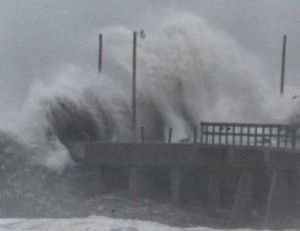Hurricanes vs. Cyclones
 So you’ve heard the word in passing. You know something (however little that may be) about the nature of this natural disaster. But what on Earth is it? What is a cyclone? Furthermore, what is its relationship to the mother of all tropical weather events—the hurricane, as well as its Northwest Pacific cousin, the typhoon. In this page we’ll delve into the hurricanes vs. cyclones debate and uncover the mystery surrounding these meteorological terms.
So you’ve heard the word in passing. You know something (however little that may be) about the nature of this natural disaster. But what on Earth is it? What is a cyclone? Furthermore, what is its relationship to the mother of all tropical weather events—the hurricane, as well as its Northwest Pacific cousin, the typhoon. In this page we’ll delve into the hurricanes vs. cyclones debate and uncover the mystery surrounding these meteorological terms.
Cyclone facts: What is a cyclone?
Cyclones are simply a system of winds rapidly rotating into an area of low pressure. In the Northern hemisphere these winds rotate counter clockwise, and down in the Southern hemisphere, they rotate clockwise. A cyclone blowing over the tropics is, you guessed it, a tropical cyclone. Tropical cyclones are also the names given to very strong cyclonic storms that form in the Indian Ocean and near Australia. These storms have different names depending on their wind intensity:
- Tropical disturbance: weak and disorganized system
- Tropical depression: winds less than 39 mph
- Tropical storm: winds 39-74 mph
- Hurricane: winds in excess of 74 mph
Hurricanes and Typhoons
The mystery between hurricanes vs. cyclones has been dispelled. Hurricanes are in fact cyclones, just a particular type, in a particular region. In the same vein, hurricane spawned tornadoes, as well as all tornadoes are also cyclonic in nature.
So we know what a hurricane is, and what a cyclone is, but what is a typhoon? What is this terrifying storm with the funny name? Here are some typhoon facts:
- Typhoon fact #1: ‘Typhoon’ is simply another name for a hurricane; a tropical cyclone
- Typhoon fact #2: Most typhoons form as a result of the monsoon trough.
- Typhoon fact #3: Typhoons are the names for hurricanes in the North Western Pacific
- Typhoon fact #4: Typhoons are generally more powerful than storms in the Atlantic Ocean because there is so much more open water to draw energy from.
For more information about hurricanes and typhoons in general, or for hurricane awareness, visit the rest of our National Hurricane Center website.

Recent Comments